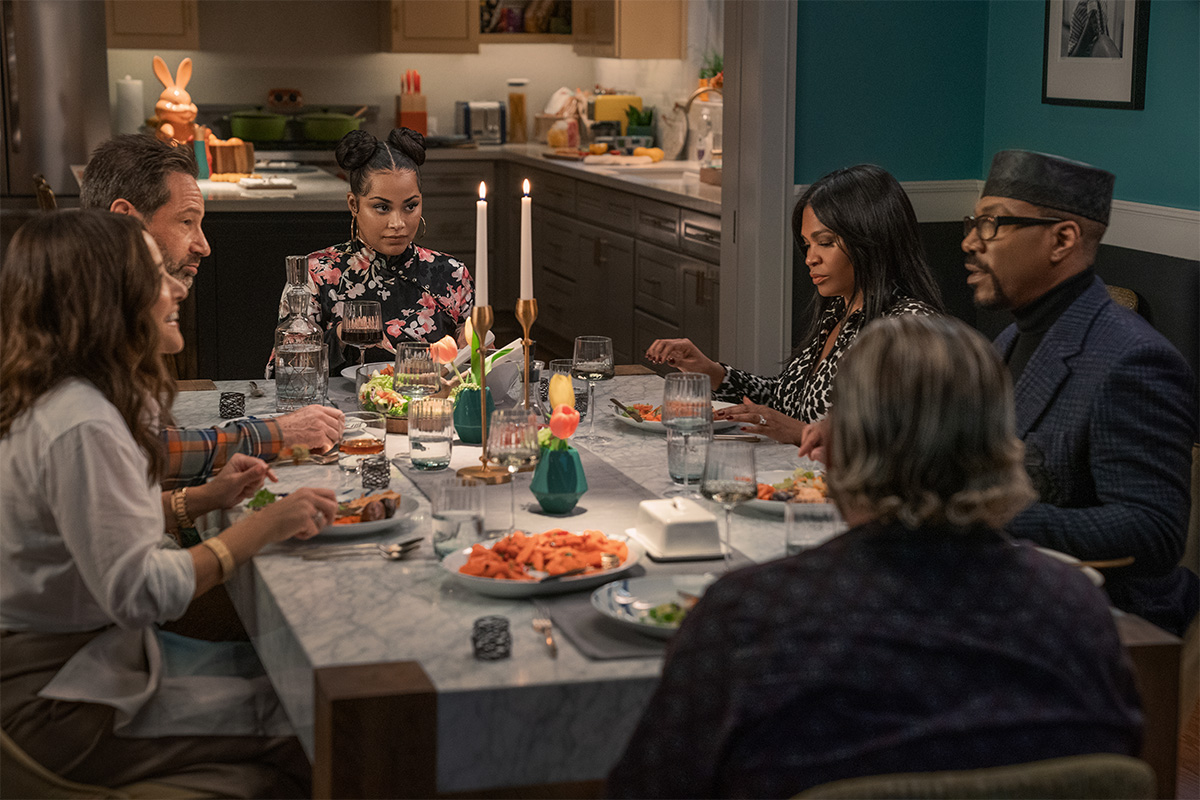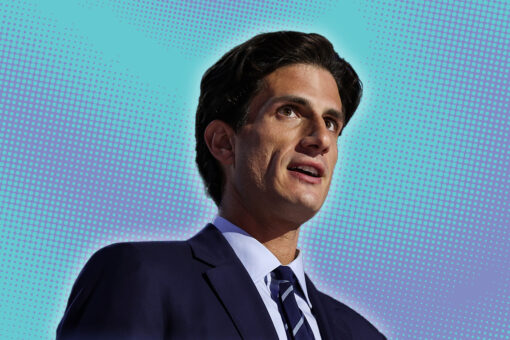Over the last few years, I’ve undergone an unexpected conversion. (Don’t worry, I’m still a proud Jew!) Thanks to shows like “The Rehearsal,” “Big Mouth” and “Friday Night Dinner,” I’ve come to absolutely love cringe comedy — something that used to make me unbearably uncomfortable.
Unfortunately, however, my newfound love for cringe comedy does not extend to Netflix’s just-released Black and Jewish comedy “You People.” Watching it, I was cringing in the worst way possible.
“You People” tells the love story between Ezra Cohen (Jonah Hill), a white Jewish guy, and Amira Mohammed (Lauren London), a Black Muslim girl. Over the course of the movie, their strong connection is sorely tested by their families and cultural differences. Going in, I knew the basic premise and that the movie would also star Eddie Murphy, Julia Louis-Dreyfus, David Duchovny, Nia Long, Sam Jay and Molly Gordon — and I was excited. How could a cast that excellent and a script written by a Jew and a Black man (Jonah Hill and Kenya Barris) possibly turn out wrong?
Oh, how naive I was. To answer my own question, said all-star cast can be wasted when 1) the script forces them to act out scenarios which place Black culture and Jewish culture in opposition to one another, as if Black Jews don’t exist, and 2) when the jokes are based on stereotypes and misinformation.
To be sure, there were a few Jewish jokes in the movie that I thought were original and actually funny. Like when Shelley, Ezra’s mom (Louis-Dreyfus) perfectly captured the Yom Kippur services vibe:
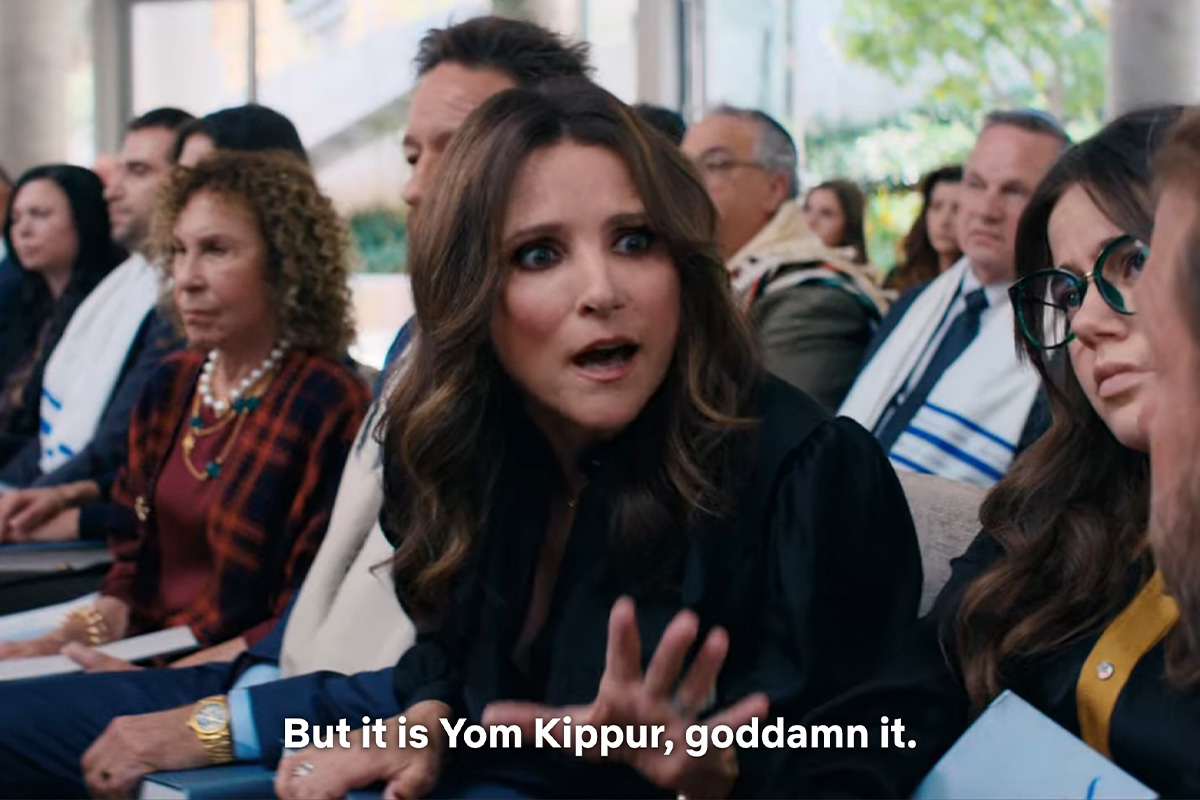
And when Ezra absolutely dunked on his sister’s (Gordon) shul outfit, not once…
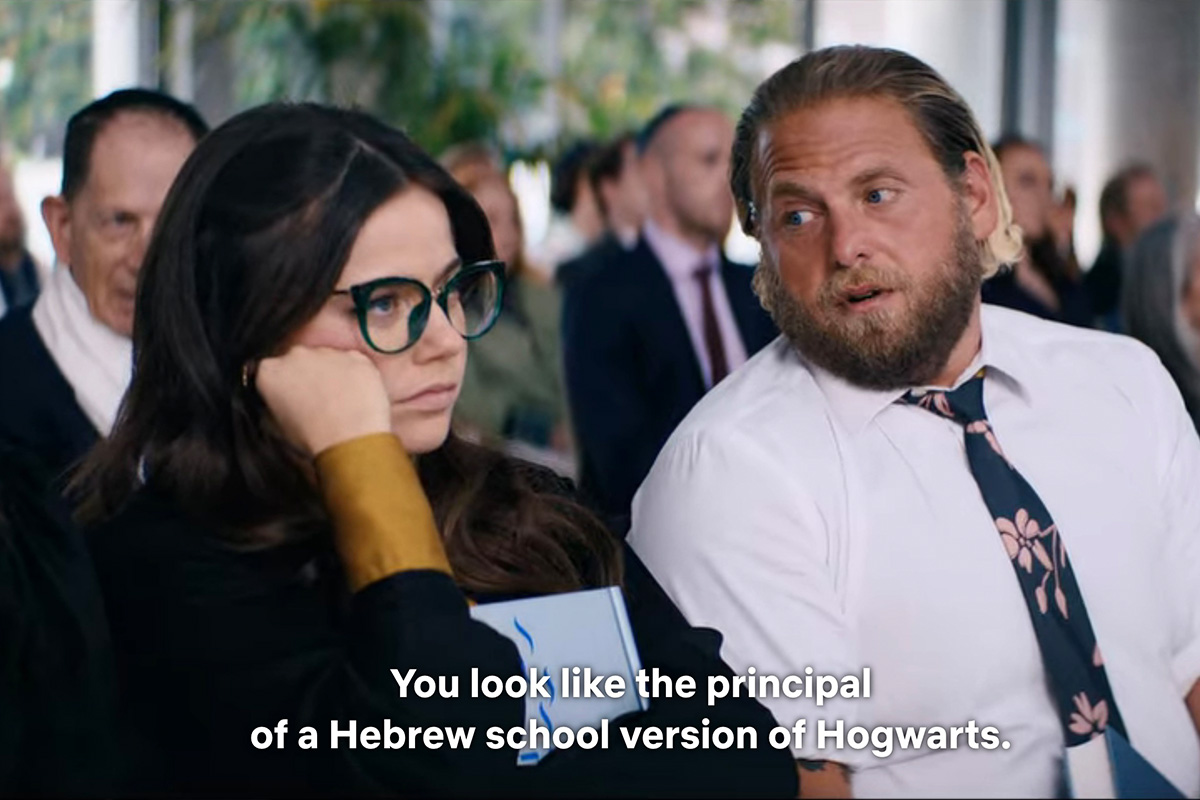
But twice!
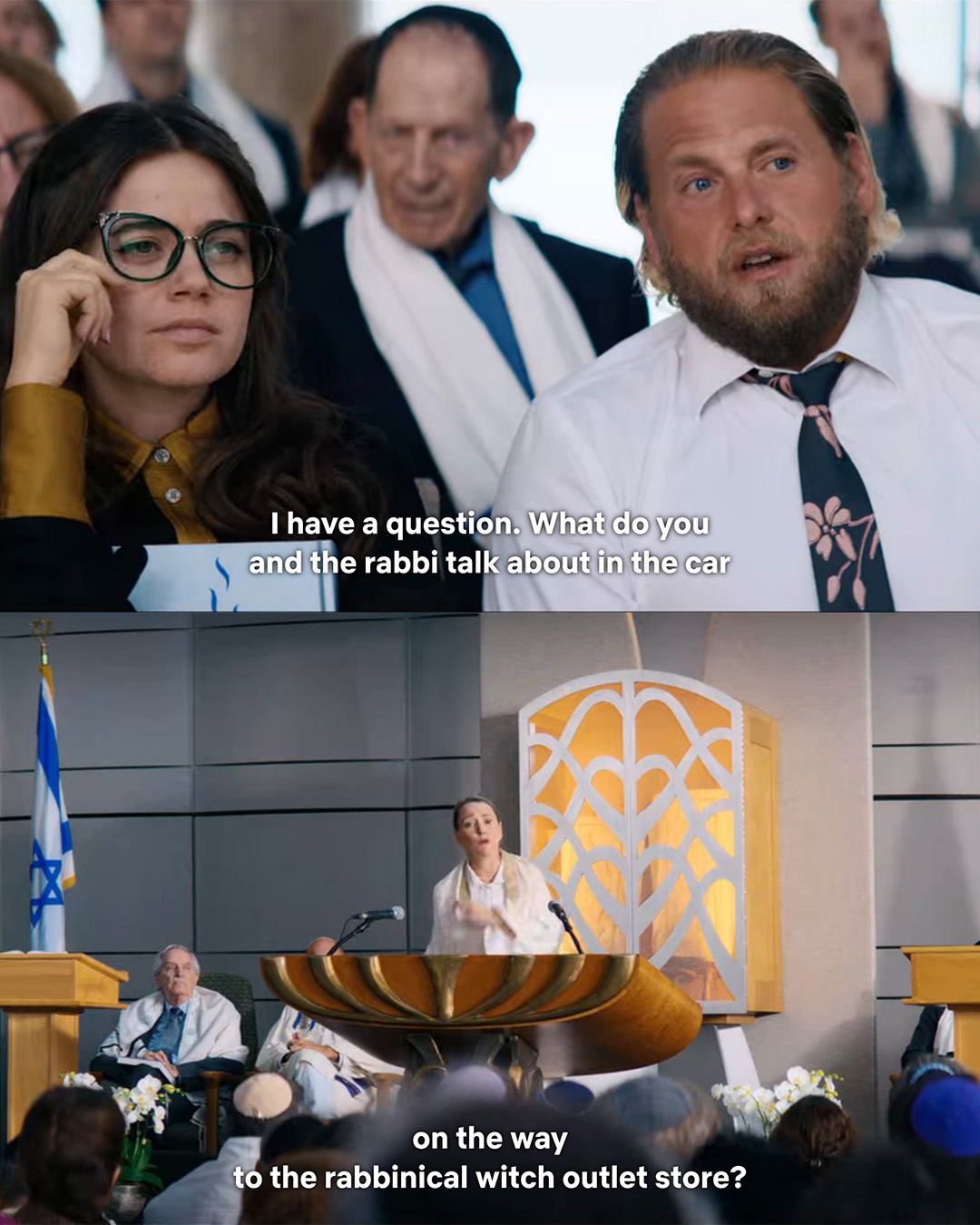
Plus, I thought that Jonah Hill and Lauren London had genuine chemistry as an onscreen couple. The “morning after” scene in which they decide to start dating (and Jonah Hill randomly says “Judaism swagger”) was actually pretty cute:

That, however, was about it. So, without further ado, here are the cringiest Jewish jokes in “You People,” in descending over from wince-worthy to made-me-actually-shudder:
1. Hebrew nationals
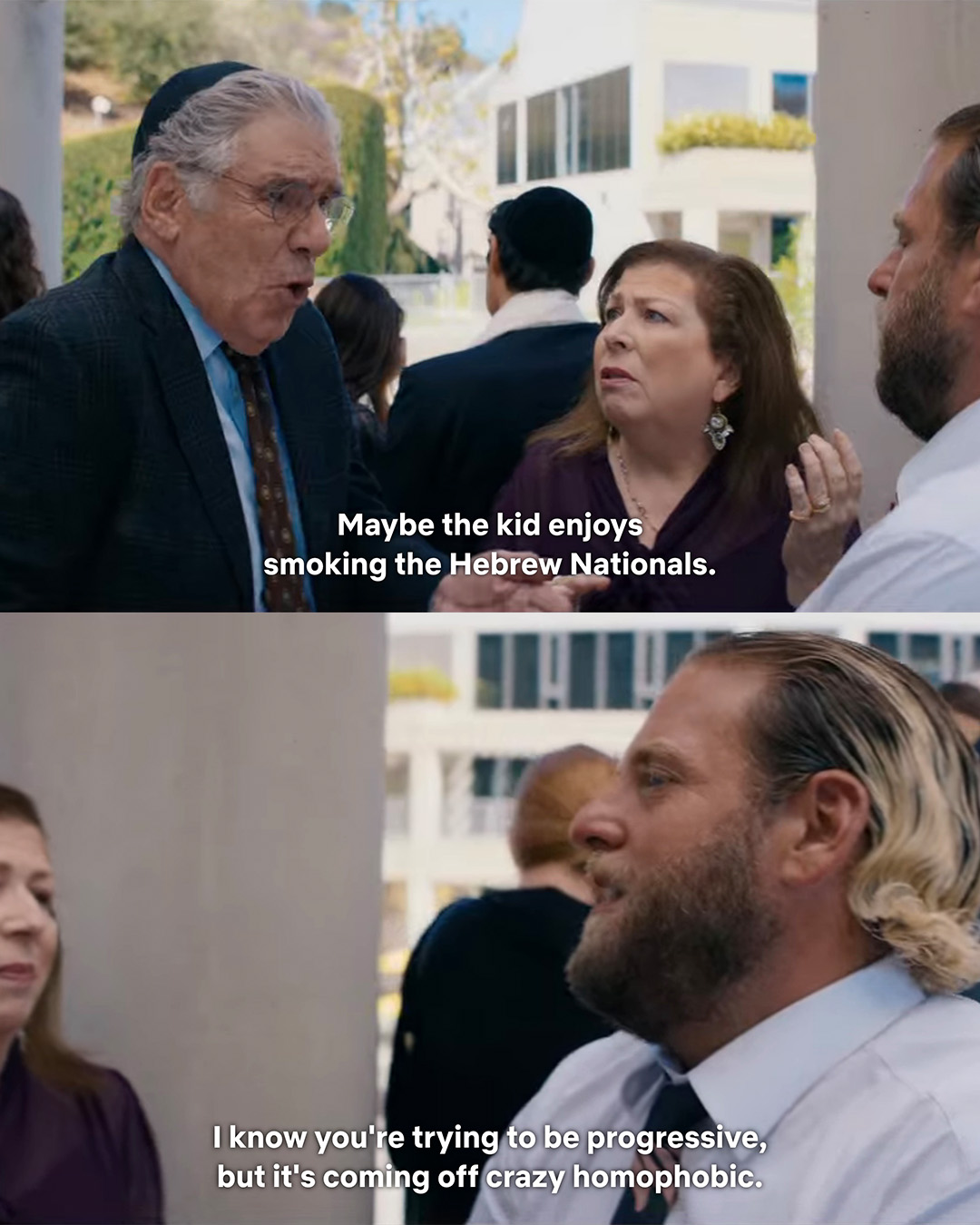
I actually don’t mind this joke in and of itself! Making your way through hordes of elderly liberal Jews after services who want to chat is such a relatable experience. What I do mind, however, is that they got Elliott Gould for this movie and this is his only line! You’re telling me that “You People” cast the first husband of Barbra Streisand and the man who made a cover photo with Grover look hot in a nothing role? Unacceptable. Quite frankly, it’s a shonda.
2. What do you know about culture?
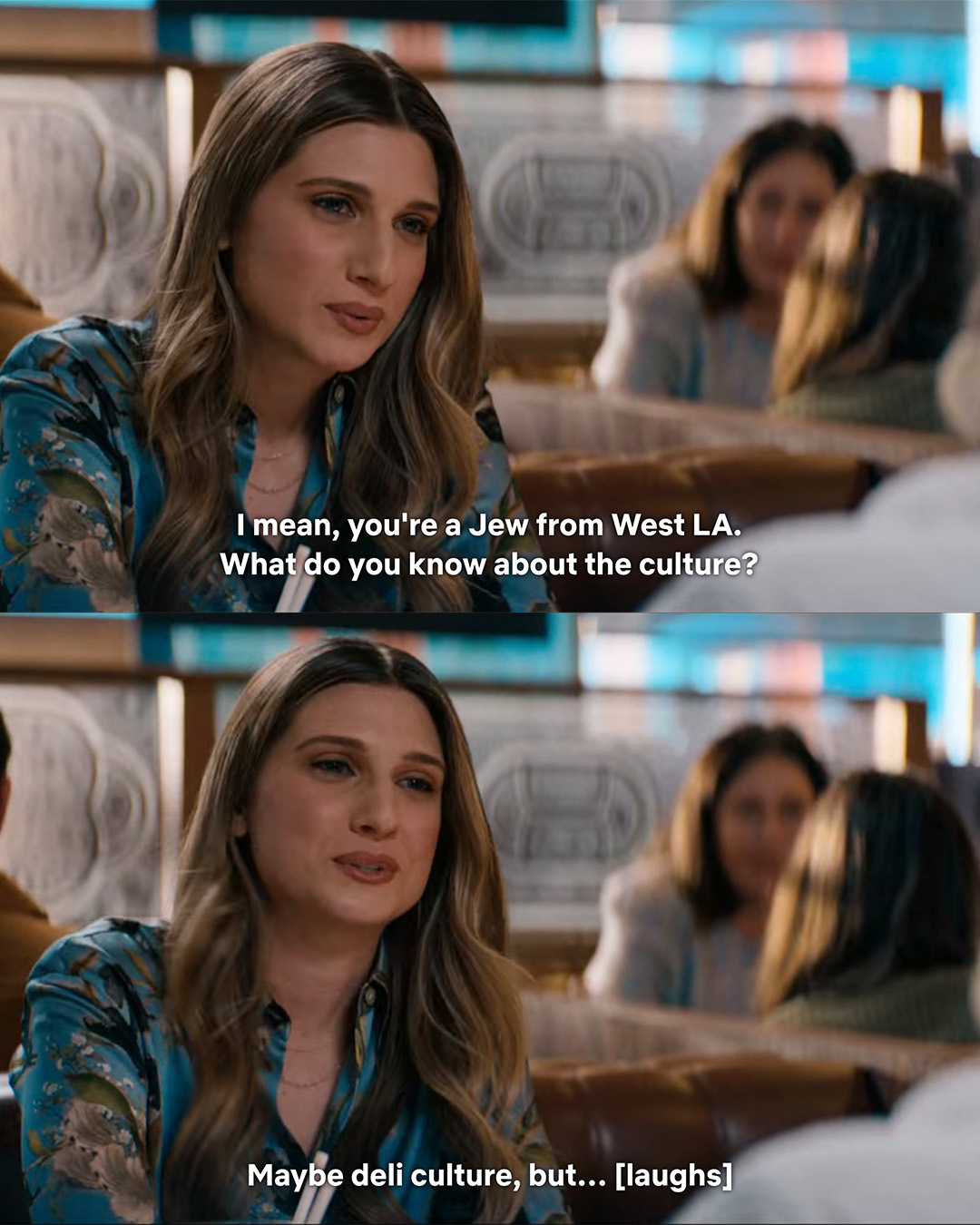
After the opening Yom Kippur services sequence, Ezra (at the behest of his mother) ends up on a date with a girl from synagogue at Nate ‘n Al’s Jewish deli. Kim seems to be the typical overachieving Jewish girl: She’s just completed her doctorate at Harvard and seemingly attends High Holiday services with her parents. She’s also completely annoying. When Ezra tells her that his dream is to go full-time with his podcast about “the culture,” she scoffs. Though I personally agree with her skepticism (the world does not need another guy with a podcast), her reasoning was off to me. “I mean, you’re a Jew from West L.A. What do you know about the culture? Maybe deli culture,” she laughs — an irritating, nasal laugh. Kim, I’m rooting for you, babe, but Los Angeles is a hub of American culture, and Jews have made their mark across the fashion, music, art, theater and film industries in America.
3. Our numbers are dwindling
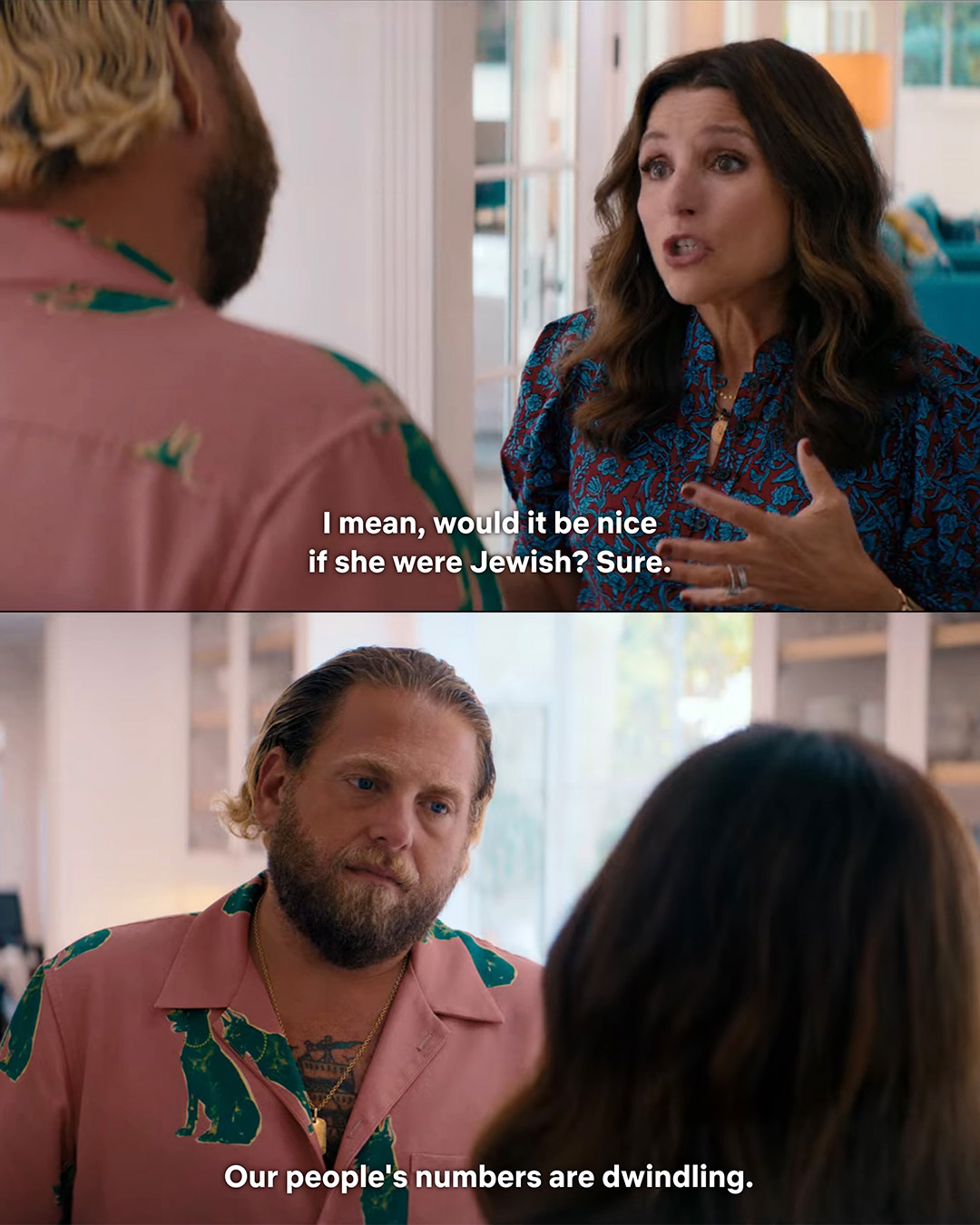
When Ezra introduces Amira to his parents Shelley and Arnold (Duchovny) for the first time, he reveals to his mother that he plans to propose. Shelley’s reaction is pure joy and excitement as she bursts into tears. Still, Ezra asks her if she’s OK with that, adding, “Well, she’s not Jewish.” Shelley initially responds that she just wants her baby boy to be happy, before walking that back with her “numbers are dwindling” comment. First of all, intermarriage is not a threat to Jewish continuity and patrilineal Jews are still Jews. Second, this moment is a prime example (and not the last) of Shelley being made into the stereotypical overbearing Jewish mother. Julia, your character was done so dirty in this movie and I’m sorry.
4. Grandma’s Holocaust ring
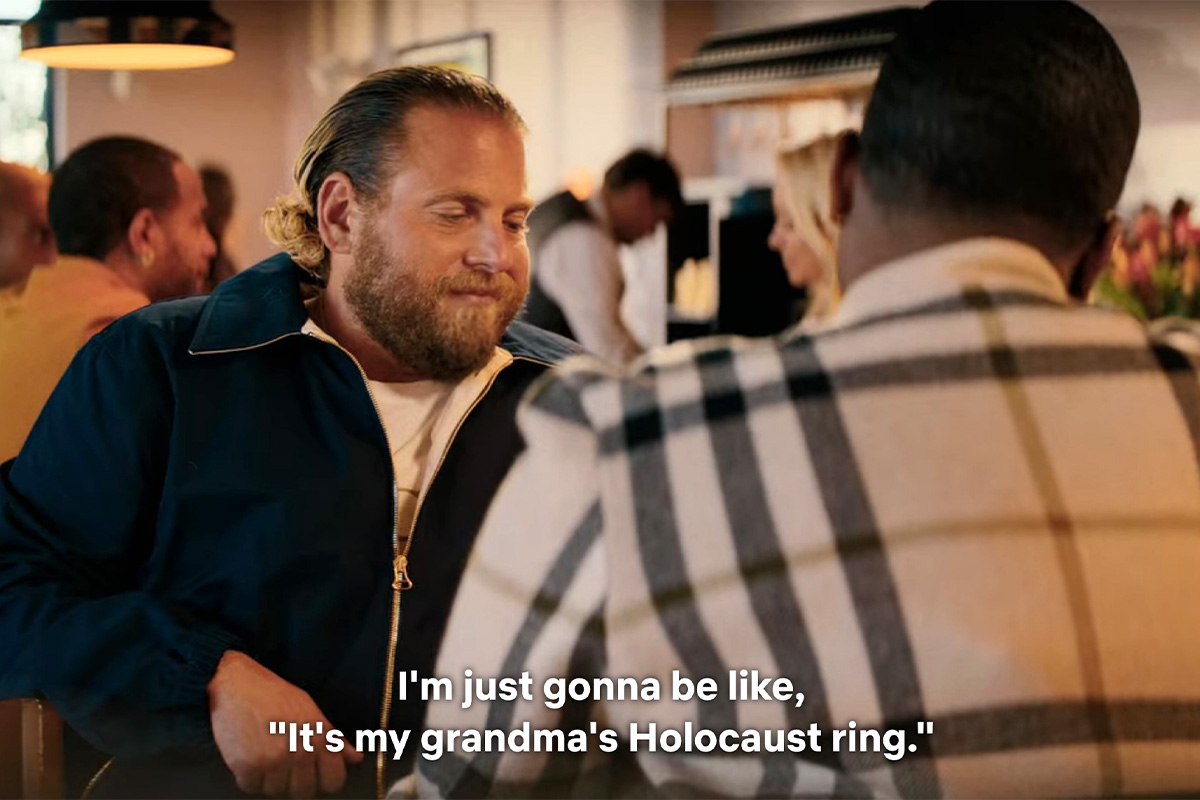
A recurring joke is that because Ezra bought a small engagement ring for Amira, he needs to come up with an excuse which explains its size. With his best friend Mo (Jay), Ezra decides that the best excuse is that the ring is his grandmother’s from the Holocaust. “They can’t say shit,” Ezra goes on. “Once you drop the Holocaust, they’re like…” A beat later, Mo also suggests that Ezra needs to “Holocaust [the ring box] down,” as the Tiffany blue box doesn’t seem very Holocaust-like. Now, I’m generally all for dark comedy and people using their trauma for a punchline. But what with the recent level of Holocaust denial, book bannings, general Nazism in the United States and the fact that “You People” was released on International Holocaust Remembrance Day, the timing of the bit left a sour taste in my mouth.
5. Newly-found generational wealth
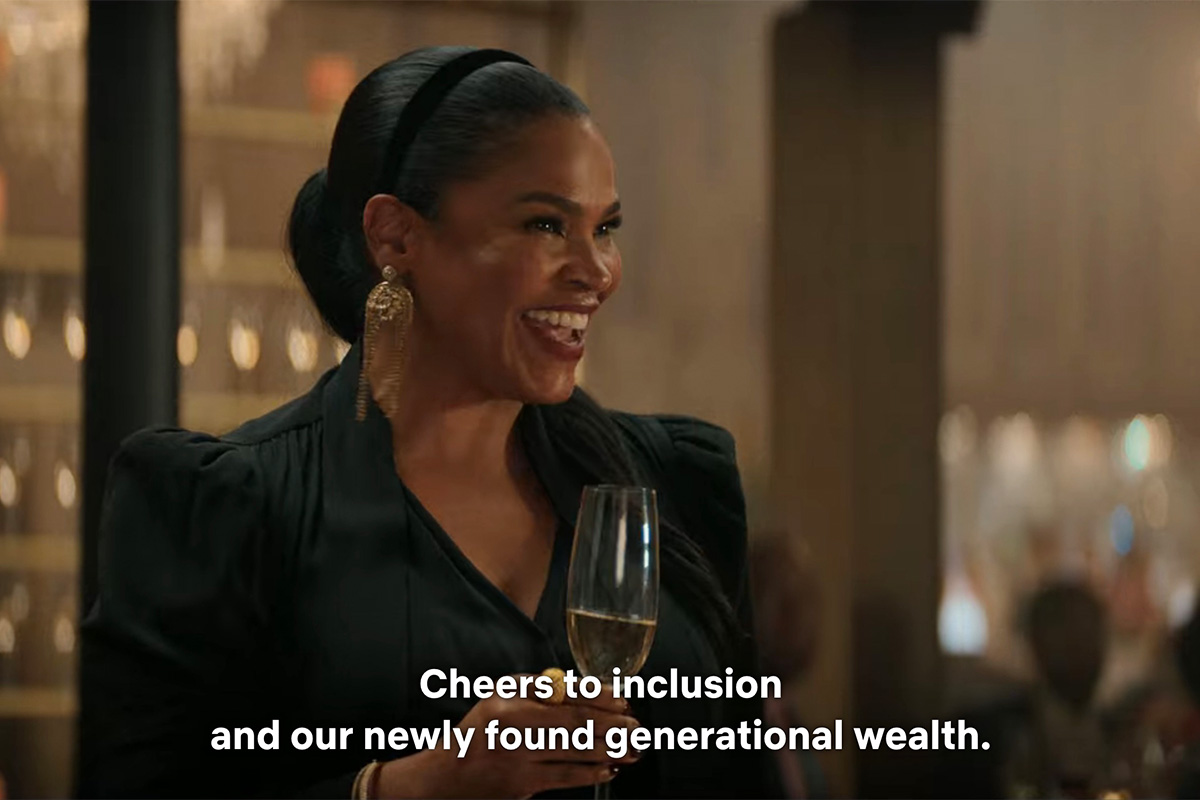
During the rehearsal dinner for their wedding, we see a montage of Ezra and Amira’s friends and family members giving all kinds of inappropriate toasts. Fatima (Long), Amira’s mom, says, “Cheers to inclusion and our newly found generational wealth.” To be clear, the Cohens do seem to be wealthy, as we learned earlier that Arnold (like his father and grandfather) is a podiatrist. However, making jokes about Jews and money, especially when not done carefully, often plays into antisemitic stereotypes. Because this line was a part of a montage, there was absolutely no time made in the movie to process the line. As a viewer, it felt like a dogwhistle — and a bit like an unchecked slap in the face.
6. What’s the title of this song?
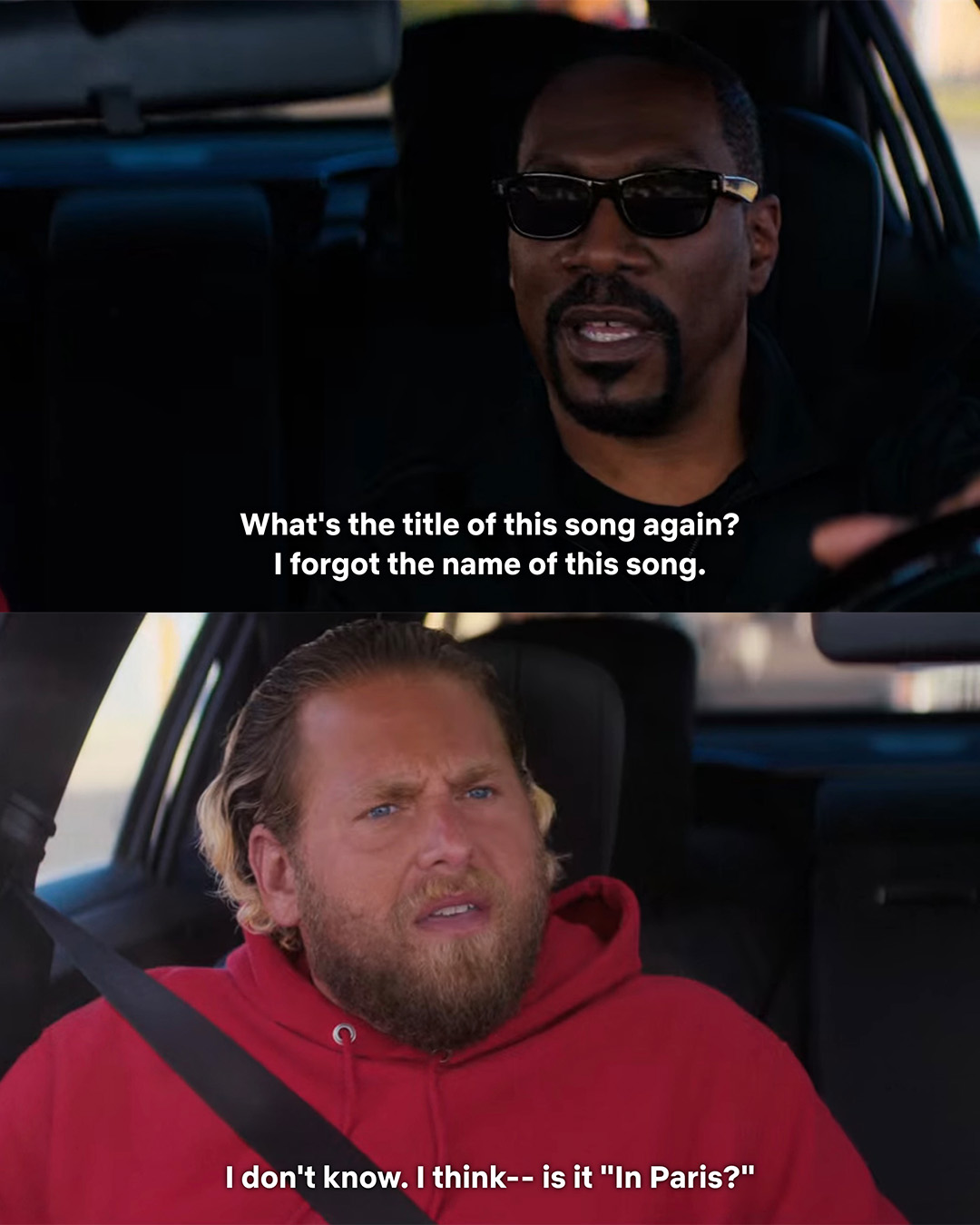
I will grant that “You People” was definitely written and in production before Kanye West’s months-long antisemitic tirade. However, I’m confused as to why this joke made it in the final version of the film. (And why the song “Ni**as in Paris” comes back at the end.) Including the song and this joke is not an integral part of the plot — it’s just a one-off scene between Ezra and Amira’s dad Akbar (Murphy) about how Ezra can’t say the n-word. However, antisemitism is an integral part of Kanye West’s public identity. Just cut this scene and call it a day, editors.
7. And last, but certainly least: The Dinner Scene
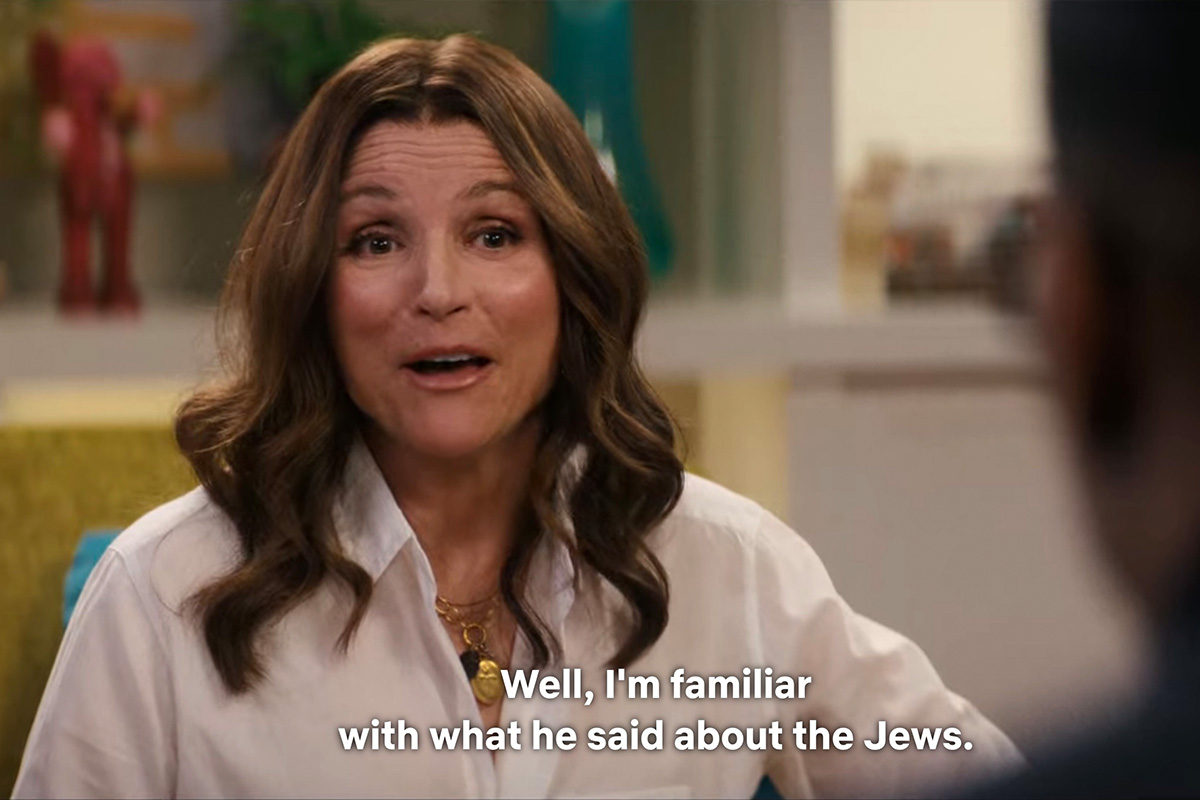
And finally, the pièce de résistance: The first time that the Cohens and the Mohammeds meet each other is a “Guess Who’s Coming to Dinner” moment from hell. As the families chat in the Cohens’ living room, the topic of the wedding comes up. Rudely, Shelley and Arnold asked Rabbi Singer to officiate the wedding without consulting Ezra and Amira; when Akbar questions whether an imam would perform the ceremony, Shelley ignorantly has no idea what that is, nor that Amira and her family are Muslim. However, this lack of consideration is met with Akbar starting to talk about how much he appreciates Nation of Islam leader and antisemitic conspiracy theorist Louis Farrakhan. “Are you familiar with the Minister’s work?” Akbar asks. “Well, I’m familiar with what he said about the Jews,” Shelley responds.
But, friends, it doesn’t stop there.
During dinner, Amira suggest that the families spend time together on the Cohens’ boat. When Akbar reminds everyone that Black people don’t have a good relationship with boats, Shelley chimes in that it’s kind of like the Jews’ relationship to trains. Akbar takes offense to this. What goes down next is an argument about comparing the Holocaust to slavery, generational wealth and police brutality. Ultimately, Akbar’s kufi (a gift from Louis Farrakhan) is accidentally set on fire.
It’s… a lot to break down, and neither the Mohammeds nor the Cohens are 100% in the right, so I think I’ll just mention the most egregious and actually antisemitic comment that was made.
When the Cohens suggest that their family came to the United States and worked hard for their wealth (which negates slavery, Jim Crow laws, redlining and other forms of systematic oppression that made it impossible for African-American families to accumulate generational wealth in the same way white families could), Fatima responds, “Actually, you kind of sort of came here with the money you made from the slave trade.”
Oof.
It’s not antisemitic to say that Jews participated in and made money from the trans-Atlantic slave trade. That is the truth. However, it has somewhat recently become an antisemitic conspiracy theory that Jews controlled the slave trade. (Thanks, in part, due to a book published by the Nation of Islam in 1991 which claimed that Jews enslaved Africans “disproportionately more than any other ethnic or religious group in New World history.” Mainstream historians have rejected the book, “The Secret Relationship Between Blacks and Jews, Volume One,” and its claims.)
Without any context, refutation or acknowledgment that the line is based in antisemitism, this just becomes an insidious piece of misinformation.
So, there you have it. Thanks for nothing, Jonah Hill and Kenya Barris!
